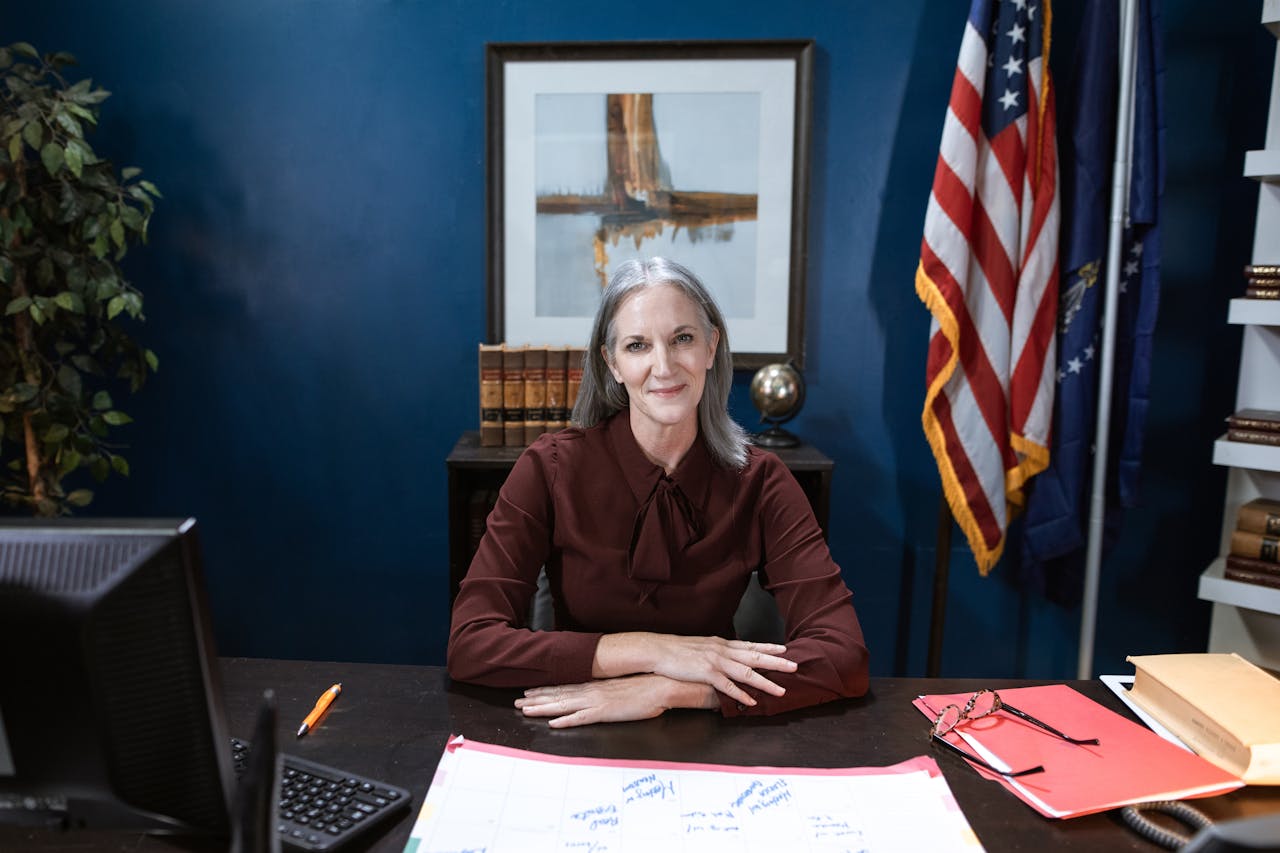Customer Service Skills for Government and Public Sector Employees Training Course
| Date | Format | Duration | Fees (GBP) | Register |
|---|---|---|---|---|
| 01 Dec - 19 Dec, 2025 | Live Online | 15 Days | £7850 | Register → |
| 26 Jan - 30 Jan, 2026 | Live Online | 5 Days | £2525 | Register → |
| 23 Mar - 27 Mar, 2026 | Live Online | 5 Days | £2525 | Register → |
| 27 Apr - 01 May, 2026 | Live Online | 5 Days | £2525 | Register → |
| 10 Aug - 21 Aug, 2026 | Live Online | 10 Days | £5325 | Register → |
| 14 Sep - 22 Sep, 2026 | Live Online | 7 Days | £3325 | Register → |
| 14 Dec - 01 Jan, 2027 | Live Online | 15 Days | £7850 | Register → |
| Date | Venue | Duration | Fees (GBP) | Register |
|---|---|---|---|---|
| 15 Dec - 26 Dec, 2025 | Dubai | 10 Days | £7900 | Register → |
| 26 Jan - 30 Jan, 2026 | Singapore | 5 Days | £4050 | Register → |
| 09 Feb - 11 Feb, 2026 | New York | 3 Days | £3925 | Register → |
| 06 Apr - 10 Apr, 2026 | Dubai | 5 Days | £4050 | Register → |
| 04 May - 15 May, 2026 | London | 10 Days | £8550 | Register → |
| 14 Sep - 18 Sep, 2026 | Nairobi | 5 Days | £4125 | Register → |
| 19 Oct - 23 Oct, 2026 | Los Angeles | 5 Days | £4950 | Register → |
| 28 Dec - 08 Jan, 2027 | Dubai | 10 Days | £7900 | Register → |
Did you know that governments implementing customer-centric service models achieve 40% reduction in complaints, 45% faster response times, and 96% citizen satisfaction while building stronger public trust and employee morale?
Course Overview
The Customer Service Skills for Government and Public Sector Employees Training Course by Rcademy is meticulously designed to equip civil servants and public administrators with comprehensive knowledge and advanced skills needed for exceptional citizen engagement and service delivery. This comprehensive program delves into cutting-edge customer experience methodologies, providing participants with a robust understanding of how to implement user-focused service design, leverage digital self-service tools, and build empathetic communication practices while ensuring accessibility, accountability, and trust in public service interactions.
Without specialized customer service training, public sector employees may struggle to meet citizen expectations and navigate complex interpersonal scenarios. According to McKinsey & Company, governments that prioritize citizen experience achieve higher public trust, faster service delivery, and improved staff satisfaction, with customer-centered models replacing bureaucracy through citizen journey mapping, frontline staff empowerment, and digital self-service tools that have reduced case-handling times and complaints by 25-40%.
Why Select This Training Course?
The ability to provide good customer service extends beyond the private sector and is critically important for government agencies and civil servants who must deliver exceptional service when interacting with citizens. As technology usage, robotics, and automation advance, governments must maintain clear, productive, detailed, and well-structured customer services with training becoming more prominent to ensure civil servants are kind, helpful, caring, and respectful. Better customer service requires organizations to train employees in honesty, ethical conduct, and strict time management. This Rcademy course provides a modern approach to civil service in customer satisfaction, building a better customer service culture, improving public image, enhancing credibility, encouraging citizen loyalty, and increasing workforce productivity in the public sector while ensuring employees are job market-ready.
Research shows organizations who implement customer service training gain significant advantages through transforming government services via customer centricity, as the United States, Canada, and Singapore have adopted customer-centered models that reduced case-handling times and complaints by 25-40% while improving employee morale and public confidence. Studies show public sector organizations leveraging technology achieve better service delivery, with the U.S. General Services Administration survey finding 85% citizen satisfaction with federal service delivery when using digital tools, while Accenture’s global study revealed that AI and omnichannel communication reduced response times by 45% and improved accessibility for vulnerable populations.
Studies show individuals who complete customer service training benefit from skill acquisition for high-trust communication, as research from the University of Vilnius found officials trained in listening techniques and emotional regulation improved resolution accuracy by 32% in departments handling citizen grievances. Personal benefits include crisis handling and digital responsiveness, as the OECD’s Good Practice Principles advocate for co-created service solutions that enhance inclusion and ensure accessibility across demographic groups while building digital and emotional literacy skills that help professionals adapt to public pressure and crisis communication.
Take charge of your public service excellence. Enroll now in the Rcademy Customer Service Skills for Government and Public Sector Employees Training Course to master the competencies that drive citizen satisfaction and accelerate your professional advancement.
Who Should Attend?
The Customer Service Skills for Government and Public Sector Employees Training Course by Rcademy is ideal for:
- Public utility employees interacting with citizens
- Nonprofit organization officers providing public services
- Civil servants in government departments
- Government employees at all levels
- Administrators in government positions
- Public sector officials responsible for service delivery
- Service personnel in national, local, and state government agencies
- Government officials in managerial roles overseeing public interactions
- Frontline staff in public service centers
- Call center operators in government agencies
- License officers and permit specialists
- Social service workers engaging with citizens
- Public information officers and communication specialists
- Complaint resolution officers
- Digital service coordinators in government
What are the Training Goals?
The main objectives of The Customer Service Skills for Government and Public Sector Employees Training Course by Rcademy are to enable participants to:
- Demonstrate ways to communicate regulations and rules clearly
- Develop methods to go above and beyond citizen expectations
- Describe effective approaches for communicating important news
- Understand how to make it easy for customers to navigate organizational processes
- Create lasting and positive relationships with citizens
- Improve professional image and credibility
- Be more effective in teamwork and collaboration
- Improve negotiation skills for handling difficult customers
- Enhance questioning and listening skills to better understand citizen needs
- Successfully handle interactions with different customer personality types
- Create service excellence goals
- Master time management techniques for improved productivity
- Develop skills in stress management during citizen interactions
- Learn conflict resolution strategies for public service scenarios
- Apply empathy and emotional regulation in challenging situations
- Leverage digital tools for enhanced service delivery
- Build rapport through positive communication techniques
How Will This Training Course Be Presented?
At Rcademy, the extensive focus is laid on the relevance of the training content to the audience. Thus, content is reviewed and customised as per the professional backgrounds of the audience.
The training framework includes:
- Expert-led lectures delivered by experienced public service professionals using audio-visual presentations
- Interactive practical training ensured through sample assignments or projects and customer interaction simulations
- Trainee participation encouraged through hands-on activities that reinforce theoretical concepts
- Case studies featuring real-world public service challenges and solutions from various international contexts
- Best practice sharing sessions where participants discuss citizen engagement experiences
The theoretical part of training is delivered by an experienced professional from the relevant domain, using audio-visual presentations. This immersive approach fosters practical skill development and real-world application of customer service principles through comprehensive coverage of empathy-driven communication, digital service delivery, and citizen journey optimization.
This theoretical-cum-practical model ensures participants gain both foundational knowledge and practical skills needed for effective public sector customer service excellence.
Register now to experience a truly engaging, participant-focused learning journey designed to equip you for success in government service excellence.
Course Syllabus
Module 1: Attaining Public Sector and Government Office Excellence
- Time management techniques to improve productivity
- Changing attitude
- Stress management methods and techniques
- SMART goals setting for improvement purposes
- Creating a better action plan
- Evaluating customer satisfaction
- Managing emotions during stressful times
- Best practices for monitoring and recording customer service problems
- Establishing quality checks
- Supervision in conflict resolution
- Strategically handling difficult work with people
- Building a service excellence culture across government offices
- Implementing continuous improvement through performance feedback loops
- Using citizen satisfaction surveys and complaints data for process improvement
- Workshop: Developing an office-wide citizen service charter
Module 2: Improving Listening Skills
- Listening to understand and not waiting for turns
- Building empathy while listening
- Dealing with barriers to listening
- Creating a good environment to listen
- Demonstrating listening skills
- Understanding levels of listening
- Listening principles
- How to listen to hard-to-deal-with customers
- Understanding the language of customers
- Applying active listening techniques to de-escalate tense situations
- Improving service delivery using reflective and clarifying listening practices
- Developing practical empathy to reinforce trust and citizen confidence
- Exercise: Case-based roleplaying to strengthen listening effectiveness
Module 3: Communication Techniques
- Fostering good rapport
- Asking the right questions
- Creating successful interactions with customers
- Building a connection with the customers
- Listening to other cues
- Showing charisma
- Elements of positive communication
- Understanding customer expectations
- Recognizing the importance of non-verbal communication
- Reacting to body language
- Practicing emotional regulation in multi-channel communication (in-person, email, call)
- Exploring inclusive language for diverse citizen interactions
- Developing concise, courteous, and culturally sensitive communication
- Workshop: Responding to challenging public inquiries effectively
Module 4: Creating a Customer-Centric Environment
- Going the extra mile to exceed expectations
- Developing a top-down approach to customer service
- Common traits of all successful leaders
- Empowering customer service employees
- Best and worst public sector customer service providers
- Internal vs. external customers
- Designing a citizen-centered public service ecosystem
- Embedding customer satisfaction KPIs within departmental performance metrics
- Empowering employees through decision-making latitude for improved outcomes
- Case study: Transitioning from traditional bureaucracy to citizen-first governance
Module 5: Using Social Media to Improve Customer Service
- Social media monitoring techniques
- Effectively using social media to enhance service delivery
- Leveraging social media: Facebook, Twitter, Medium, Twitter, and YouTube
- International standards and best practices in service delivery
- Understanding the era of technology
- Protecting your organization’s social media reputation
- Applying social media listening tools for public engagement and early issue detection
- Creating unified communication strategies to maintain brand consistency
- Encouraging transparency through timely and accurate online interaction
- Practical task: Drafting a social media response plan for public inquiries
Module 6: Improving Customer Service Experience
- The types of customers that exist
- Evaluating a customer’s behavior
- The probing framework
- Understanding customers
- Interacting with customers
- Collate experience and chart learning
- Escalating cases to the right authorities
- Complaint handling
- Rewarding customers
- Mapping the citizen journey to remove service bottlenecks
- Implementing feedback systems for continuous service enhancement
- Building emotional resilience while handling public complaints
- Workshop: Developing a complaint resolution framework in public administration
Module 7: Creating a Concrete Foundation
- Handling both internal and external customers
- Understanding and satisfying different managerial expectations
- Learning the principles behind customer service
- Using the right language to your advantage
- Showing professionalism in customer service
- Understanding your strengths
- Becoming an authentic leader
- Recognizing customers and their different wants
- Understanding the balance between compliance and compassion in service delivery
- Developing a professional public image built on trust and reliability
- Applying behavioral psychology to anticipate service needs and resolve tension
- Individual reflection: Crafting a personal growth plan for service professionalism
Module 8: Fostering a Partnership
- Giving better alternatives
- Understanding the needs of each other
- Becoming resourceful
- Handling issues professionally
- Being attentive
- Separating personal issues from professional barriers
- Creating the right attitude
- Understanding the customer is king
- Enhancing credibility with all types of customers
- Knowing which one is important: trust or respect
- Setting important goals
- Establishing citizen partnerships through co-creation initiatives
- Designing engagement programs that promote transparency and accountability
- Encouraging teamwork within inter-departmental service teams
- Activity: Simulated negotiation exercise between citizen representatives and civil servants
Module 9: Addressing and Identifying Customer Needs
- Meeting all the basic needs
- Understanding different situations
- Getting more details of issues
- Staying outside the box
- Perfecting verbal communication
- Doing research
- Applying relevant skills
- Understanding who are customers
- Identifying service delivery gaps through analytical methods (surveys, trends)
- Creating adaptive services that reflect citizens’ demographic and accessibility needs
- Integrating behavioral insights to personalize the government service experience
- Workshop: Designing an inclusive citizen engagement blueprint
Training Impact
The impact of Customer Service Skills training is evident across diverse governmental contexts:
- United States – Digital Service Transformation Excellence
Implementation: The U.S. General Services Administration launched Customer Experience (CX) Centers of Excellence applying data analytics and user journey research to enhance public interaction times, reduce redundancy, and improve accessibility. The comprehensive initiative involved revamping digital portals like USA.gov, implementing data-driven service improvements, and building institutional capacity for citizen-centered service design through digital transformation.
Results: Processing time for citizen inquiries fell by 38%, call volume decreased due to improved digital self-service, and trust in public administration rose according to Gallup’s confidence index. The systematic approach resulted in faster service delivery, higher citizen satisfaction, and demonstrated how data analytics and digital tools can transform government-citizen interactions while building sustainable frameworks for ongoing service excellence and public confidence.
- Dubai (UAE) – Smart Government Service Excellence
Implementation: The UAE’s “Happiness Agenda” revolutionized service design by training employees across 30 government bodies in empathy-driven interactions and real-time service tracking. The comprehensive approach involved integration of over 130 public services into the DubaiNow smartphone app, allowing citizens to complete government transactions in minutes while building institutional capacity for seamless digital service delivery.
Results: The initiative boosted citizen satisfaction levels to 96% within three years, setting new standards for government-citizen interaction. The structured approach resulted in faster service delivery, enhanced accessibility, and demonstrated how empathy-driven training and digital integration can transform public service experience while building sustainable frameworks for ongoing citizen satisfaction and government efficiency.
- NASA (USA) – Digital Engagement Excellence
Implementation: NASA revolutionized public outreach through a digital engagement model using social media storytelling to transform complex scientific content into relatable experiences. The comprehensive approach involved transparent, emotionally intelligent communication across platforms like YouTube and Twitter, building institutional capacity for human-centered communication in scientific agencies.
Results: The model achieved millions of citizen engagements annually, improving trust and educational impact while redefining outreach in governmental scientific organizations. The systematic approach resulted in enhanced public understanding, stronger credibility, and demonstrated how emotionally intelligent communication can transform public engagement while building sustainable frameworks for ongoing trust and educational impact.
Be inspired by U.S., UAE, and NASA excellence. Secure your spot in the Rcademy Customer Service Skills for Government and Public Sector Employees Training Course and unlock your public service potential today.







